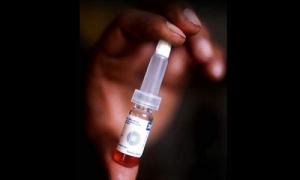Brain Activity Changes in Pregnant Women, Study Finds
As weather warms, some areas in U.S. will have many high ozone days.
NIH study demonstrates that a new cancer immunotherapy method could be effective against a wide range of cancers

Six months after ACT with mutation-specific T-cells, tumors that metastasized to the lung have shrunk.
Air quality deteriorating in many of the world’s cities
Air quality in most cities worldwide that monitor outdoor (ambient) air pollution fails to meet WHO guidelines for safe levels, putting people at additional risk of respiratory disease and other health problems.
United Nations agencies report steady progress in saving mothers’ lives
New United Nations* data show a 45% reduction in maternal deaths since 1990. An estimated 289 000 women died in 2013 due to complications in pregnancy and childbirth, down from 523 000 in 1990.
Health and financial analysis reinforces NIH’s decision to fund Women’s Health Initiative
An in-depth analysis of final data from one of the Women’s Health Initiative (WHI) Postmenopausal Hormone Therapy Trials has found that the investment in WHI resulted in a return of $140 in net economic value for each dollar invested in the trial.
World Bank Supports Better Health Services for People in Tajikistan
The Tajikistan Health Services Improvement Project, which will pilot innovative ways to improve the quality of services of primary health care facilities, was officially launched in Dushanbe by the Minister of Health and Social Protection of...
UN agency declares global health emergency to stem potential resurgence of polio

Oral poliovirus vaccine.
Drug pair cuts children’s urinary infections up to 80 percent

Vesicoureteral reflux due to an abnormal, shortened ureter.
Steroids after surgery do not help infants with rare liver disease
Infants with biliary atresia — a rare liver disease — did not benefit from corticosteroid treatment after bile duct surgery and could face more harm, according to a study funded by the National Institutes of Health.










